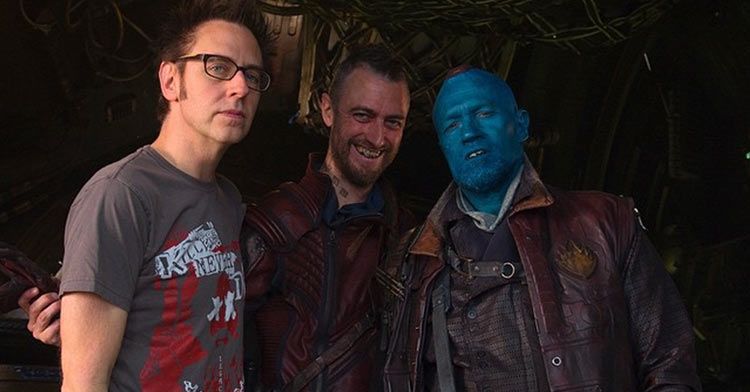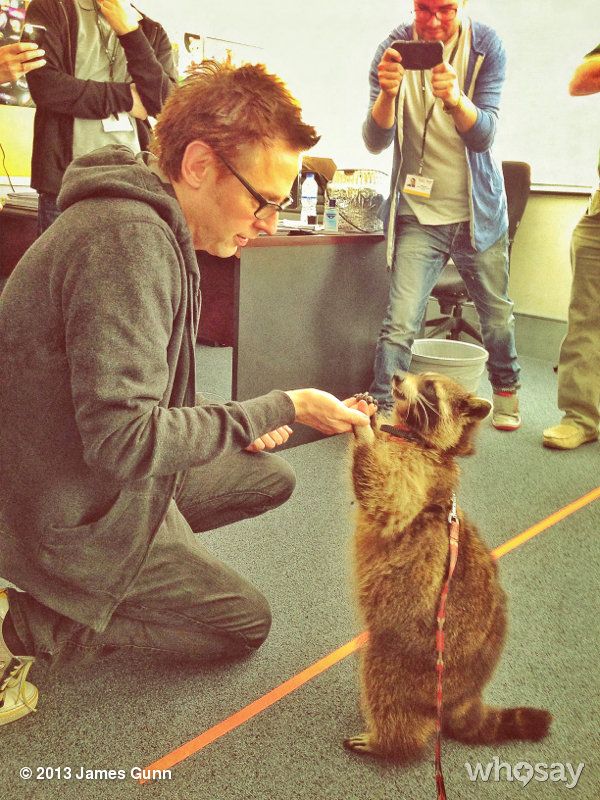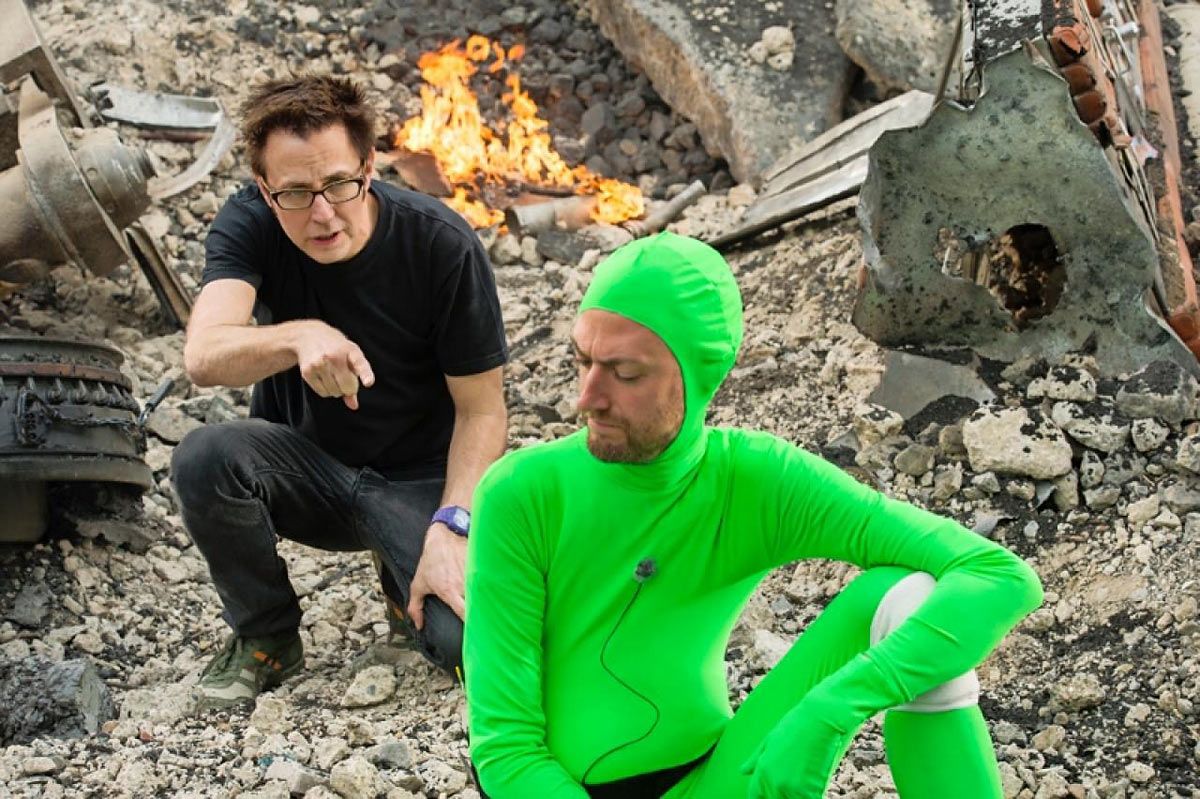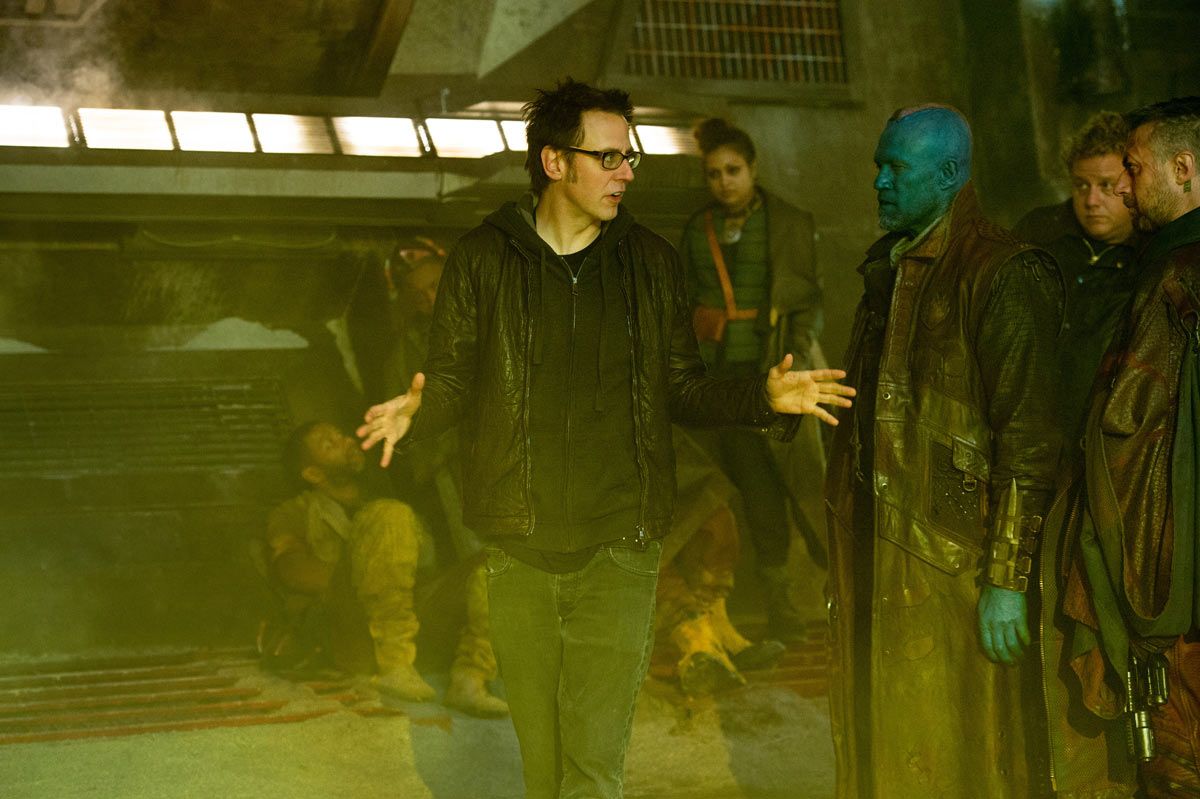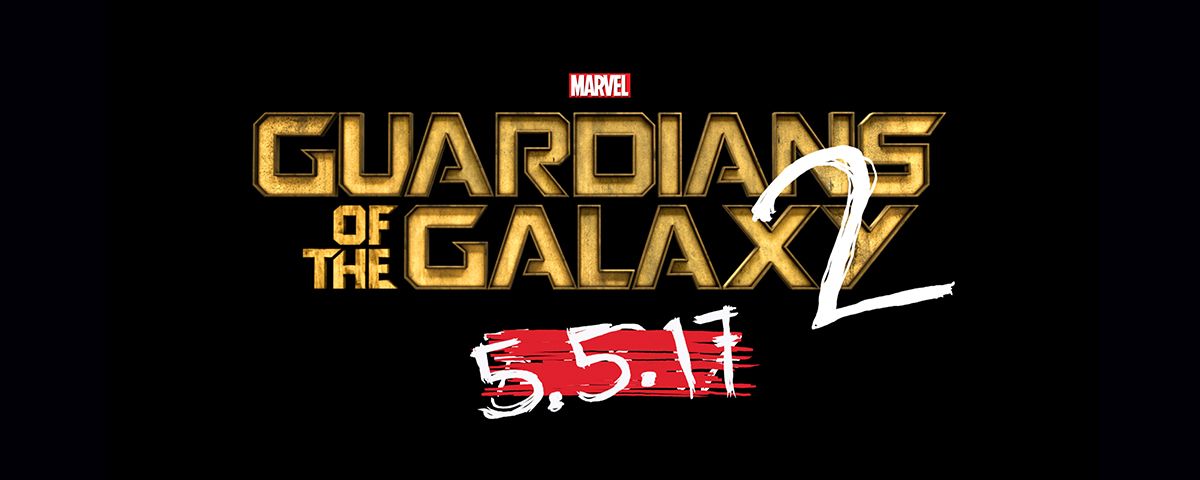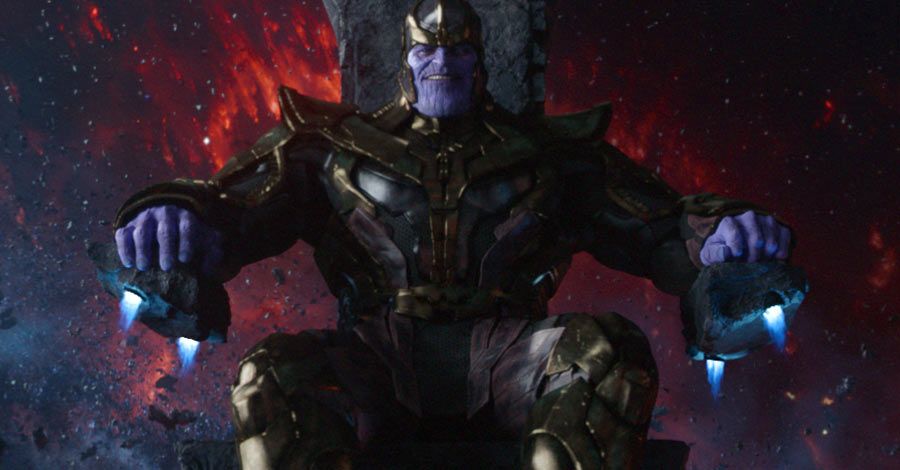Make no mistake about it: James Gunn is the guardian of the Guardians of the Galaxy.
With his blockbuster Marvel film "Guardians of the Galaxy" making its Blu-ray/DVD debut this week, Gunn's been revisiting his experience making one of the year's biggest hits while offering tantalizing glimpses at what he's got planned for the lovable "bunch of a-holes" as he charts their follow-up adventure. And he's committed to making sure that wherever the cosmos takes them, audiences are always going to be given something new.
Gunn Reveals "Guardians of the Galaxy" Secret "Awesome Mix Vol. Zero"
In a candid conversation with Comic Book Resources, Gunn covered a lot of fresh territory, including which aspects of the ambitious film that he found to be daunting at the outset, the depth and breadth of the first film's world-building and how it also sets the stage for the next installment, the degree of unpredictability he hopes to build into the next story, and staying in close communication with the fan base. The outspoken director also expands on his recent comments regarding Hollywood's sudden rush to build shared universe film franchises in the wake of Marvel's success, and why the Marvel approach avoids the very pitfalls he sees happening elsewhere..
CBR News: This is the kind of filmmaking opportunity you were really ready to grab onto and run with when it presented itself. Now, looking back after all the success that "Guardians" has enjoyed, what was the most daunting thing you faced, the aspect that you weren't sure it was going to work out?
James Gunn: Well, that was true at different points in time! [Laughs] I mean, I remember in one of my early interviews, when I first went in, I met with Jonathan Schwartz and Jeremy Latcham. They pitched me the idea. Then I had to go pitch to Kevin Feige and Louis D'Esposito, and they liked me. And then I had to meet with Victoria Alonso -- she was like the last piece of the Marvel puzzle -- and Victoria said to me, "You know, what are you afraid of?" And I was afraid of two things.
Number one, I was afraid of the script, because there wasn't a finished script at that time. As a director, I can think my way around problems; it's a logical part of myself. As a screenwriter, I really feel at the mercy of the muse at times. And so sometimes I'm a good writer, sometimes I'm not that great a writer -- and that's something I was very afraid of. At that point, I wasn't even hired as a writer. Somebody else was writing a draft of the script, so I was very afraid of how that draft was going to turn out and whether the screenplay was going to be good by the time we got to filming.
And I was also scared of bringing my dog to England! That was the other thing, because I had heard there was a quarantine, and I think Victoria liked me because I started to get teary-eyed at the thought of leaving my dog for a year. And she told me, "Oh, you don't have to leave your dog -- there're new rules. You can bring your dog." And I said, "Oh, thank God."
So I think that early screenwriting stuff was the most daunting, and then of course, along the road, there became other things that were very difficult in screenwriting. Before I added Yondu, there was a different third act. That was very difficult. I would say in the editing phase -- getting the first act could be a nightmare -- was a very difficult process because I had to introduce so many characters in such a short amount of time and not have people completely bored by the time we got to Rocket and Groot at the mall. So that was a very difficult and daunting task. But for the most part, it was pretty smooth. I mean, listen, it was easier than other movies I've made -- just longer.
James Gunn Says No To Nova In "Guardians Of The Galaxy 2"
One of the things that really stood out to me while looking at the behind-the-scenes elements was how much in-depth world-building you and your team did to make this a very rich, detailed universe. What did that work do for you, in terms in the storytelling and setting the stage for other elements in the Marvel Cinematic Universe's cosmic side?
Well, it makes it a lot easier. While I was writing the screenplay, I was simultaneously -- people would ask me to describe what really is Ronan's religion, traditions here, that he's doing? And I would write up a huge document on what the Kree religious ceremonies were like -- what they believed, what was right -- and I would share that with people. Obviously, there's some history there with Yondu and his relationship with Quill's father, and I would write up exactly where Quill came from, who his father was, what the Ravagers were. I would write up documents on the Ravagers and their culture, which is very different than other cultures, and how they planned things, and how the Xandarian culture is different from Kree culture. And the thing about Xandar, they became kind of good guys in the first movie, but they're not as good as we think they are.
So there's a lot of stuff -- just notes that I'd be constantly taking as I was working on the script and as I was working on the designs of the spaceships and everything else that would sort of fulfill this world. The backstory of the Collector, which Benecio [Del Toro] and I would spend a lot of time talking about. That's where Benecio's strength is, really going in deep into a character. And there's so much there to explore in terms of what he's doing, who he is, what his background is.
There's a lot of stuff there. That's why this movie appeals to me, because the first and foremost fun part really is creating this universe of characters and cultures. And then out of that universe, picking the points that you string together to create a story. But when it's so much bigger than that, it's a lot easier to tell the story when you're telling a small piece of that bigger puzzle.
Obviously, you're going to be caretaking the Guardians for a while. What kind of role do you want to have in the overall Marvel Cosmic Universe going forward as it expands?
I haven't decided yet, to be completely frank with you. I just really haven't decided yet. I mean, I obviously love the Guardians, the Marvel Cosmic Universe. It means a lot to me. And there are other things out there as well. So I'm trying to figure that all out right now.
What inspires you when you think ahead, from the audience response to aspects of the first film? What made you go, "Oh, okay -- that's something I want to explore that I hadn't thought of before?"
Good question. I think I thought of most of it [Laughs], so I definitely see what people are more interested in. I think my biggest surprise was just how much they latched on to nearly everything. My surprise was how much they liked the humor in the movie. How much they liked the visuals. How much they got the visuals. How they saw what they were. How they were different from other movies that were coming out. There were a lot of things in the movie that people would probably enjoy, but I didn't know that people would get it in such a specific way, that they would understand the movie so incredibly well. That was a great joy for me seeing that. And it definitely influences me.
There's no doubt: I like creating for an audience. I would much rather create "Guardians of the Galaxy 2" right now. People are excited about it. That excites me. And that fuels me. So, definitely, the audience's interaction with the film definitely does influence me in that way. But then it's also about, who do I fall in love with? The truth is, before "Guardians," I don't think very many people would have said, "Oh, the character that is going to be most people's favorite is Groot." I don't think anybody would have said that. That's definitely the case after the movie has come out. And nobody would have said that beforehand.
There's a process of discovery, and I'm not sure the characters who were the favorites from the last movie are going to be the favorites in the next movie. It's really about listening to the audience, but then keeping myself as open to discovery as possible, because I think that there's a lot of things that have gone unexplored and characters that have gone unexplored.
"Guardians of The Galaxy 2" -- Who's Your Daddy, Star-Lord?
You've mentioned previously how you wanted to not mirror everything you did for any "Guardians" sequel -- the music was obviously a huge factor, and yet you don't want to rehash it; the structure doesn't have to be identical, etc. Tell me more about that thought process.
Really, it's just about walking forward in an elegant manner. When you go forward with a group of characters, that means you have to go forward. And going forward means you're understanding these characters in a new way, you're developing a new kind of story about their lives and who they are and where they're going. And if you're doing that, if you're walking forward, then you can't just repeat what you did before. That's going backwards. That's not understanding the character.
I mean, no knock against James Bond -- I love James Bond movies, and the Sam Mendes one ["Skyfall"] is slightly outside of this, and "Casino Royale" is slightly outside of this -- but basically, James Bond is a James Bond movie over and over and over again. The character never learns anything, and the character never does anything new. And that's not a knock. It's a really fun series. But that's not what the Guardians are. The Guardians are going to continuously change. I think that some of the characters are probably worse than what we think they are, and other characters are better than what we think they are. It's going to be interesting to learn a little bit about that as time goes on.
Where are you in your creative process on the sequel?
Well, I'm really inspired. The whole story is written. I'm very excited about it. And that's where it is. But the story point for me is, in a lot of ways, the most difficult thing. I feel like it's pretty strong. It's constantly shifting, but I feel like it's pretty strong. I'm excited about it.
Is there going to be the same degree of world-building as the first, or have you done a lot of the heavy lifting as far as the first one?
No, I think there's a combination of some new world-building, combined with getting to know the world we already know a little bit better, just taking a closer look at everything to get to know things a little bit more intimately as opposed to seeing in very broad terms what some of these cultures are -- like, getting to know them very up close and personal.
You recently made some trenchant commentary on social media about this shared universe mentality that's permeating the Hollywood studios right now. You're also working on a franchise that could become a shared universe within a shared universe -- a lot of things could spin off from "Guardians." What us your mindset on this going forward?
Well, listen -- here's the thing: You plan for the best, but never at the sake of what's directly in front of you. That's really all it is. Kevin Feige taught me that early on. I remember, there was this point in time when I was like, "Ugh, this thing about Thanos isn't working." And Kevin was like, "We're never going to hurt the story of the movie in front of us for the sake of the long haul. We're always going to have faith that we'll be able to work out those problems down the line." And I think that's really one of the reasons why Marvel has been so good at creating the shared universe, because they really are never willing to sacrifice the present film for the sake of this supposed overall picture that they have.
So for me, I was always excited about creating a universe with the Guardians and being able to see where all these other characters would go in film or other media or whatever -- but never at the sake of the story. The story is the most important thing, what we're putting on film is the most important thing. The next movie is always going to have priority over everything else. And if that's not the case, then it does become a business model -- and it's not going to work. And that's really what my problem is with a lot of the shared universe stuff. It's not a shared universe, which I love when they work. The fact is, it's not organic.
And the movie industry was really, really hurt, in my opinion, over the past 10, 15 years or so because we've become accustomed to a type of film making which makes about 50 percent of the amount of the money it makes during the opening weekend. That's a shitty model and has been to the detriment of films, because what you get are movies with great [intellectual properties] that people know, and that have great trailers, but suck as films. But they still make enough money, so they continue to make them. And that's been really bad.
I think that movies are, overall, worse than they were 20 years ago because of that change in cinema, and I think the shared universe is just other way of trying to do that same thing. The problem is, it's going to be to the detriment of people going to the movies. If you keep making movies that people don't want to see, it's going to hurt us. That was basically what my comment on shared universe had to do with.
I've been impressed with how you've been doing your promotional duties for "Guardians" around the world for the past several months while still maintaining such an engaged presence with the fans through social media. Why is that important to you?
Listen, I make movies because I have a need to make movies. I grew up in a town called Manchester, Missouri, where I never knew anybody in the film industry. When I was a young man, I met Joe Strummer from The Clash at a record store. I went up, and I talked to him, and I said, "I'm a big fan. I just want you to know you really affected my life," and Joe started walking with me and talking with me, and he didn't really let me leave. He just kept talking to me, and that meant more to me than you can possibly imagine.
It changed my life. I mean, here was a guy who was, in my mind, a magic person, a rock star -- someone who was beyond me, that was not a human being, and he took the time to talk to me as a human being and nurture my dreams, in a way. I think it's really important for people to realize we're all just human beings, trudging through life, trying to figure out our thing.
Me doing that, I'm just basically goofing around on Twitter and Facebook and throwing my thoughts out there, and answering some questions from time to time, isn't that big of a deal. It doesn't really take me that much time. Most of the time I spend on Facebook or Twitter is in between reps at the gym. It's not like I'm spending all day doing that. Or, like, during commercial breaks when I'm watching TV. I think it's a pretty small price to pay to be able to actively engage with the fans. And I get something out of it, because I see where people's heads are at, what interests them today, what they are into.
I think there's a lot of film directors and actors, performers, that start to become successful, and after they become successful they become disengaged from the audience because they're living in a different world. They're driving their 22 Ferraris and not really understanding where people are at. I think just from being out there with people and talking to people that are going and doing whatever they're doing, it helps me stay down to earth.

